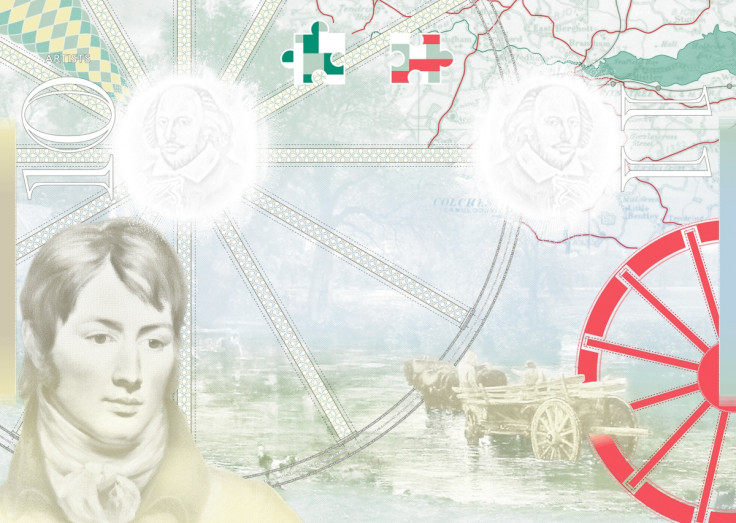New British passport: Women being underrepresented is not the natural order of things

When he was questioned on the inclusion of only two women to seven men in the UK's new passport design, Mark Thomson, director general of the Passport Office, said, "Let's not lose sight of the fact that today is about launching one of the most secure documents in the world. So the fact that we're also using the opportunity to celebrate creativity is really good, really nice, but fundamentally, it's about making sure this is a very secure document." His subtext could not have been clearer: the lack of representation of women is a non-issue.
Unfortunately for Thomson, many disagree with him. Only minutes after the new design had been unveiled, several female MPs including Emily Thornberry and Stella Creasy, had already tweeted their displeasure at yet another representation of British history that with a blind spot where women are concerned.
And not long after, came the almost inevitable petition. Indeed, so inevitable was the petition, that I found myself reacting mainly in bafflement to the unveiling of this design. The conversation about how women are routinely underrepresented and misrepresented in British society has become mainstream — it is hard to understand how such an unnecessary blunder ever got through what must have been a fairly exhaustive approval process.
Because an unnecessary blunder is exactly what this is. People might argue that the passport is reflecting a history in which, because of sexism, women found it much harder to find public success, therefore it is right that there will be fewer women than men represented.
But this logic, while in some ways faultless, fails on a number of fronts, the most obvious being that the passport does not make clear that the reason there are fewer women is because they are making some kind of feminist statement about historic discrimination. It just presents it as the natural order of things — and in this way, perpetuates the kind of discrimination that caused the imbalance in the first place.
It also fails to account for the fact that the women who did make it through in such circumstances are arguably that much more impressive and worthy of inclusion — and furthermore, that the imbalance is not in any case as stark as history books present it.
We are only now coming to rediscover a whole pantheon of women who were celebrated in their own time, only to be forgotten in their death, as a result of practical concerns like a lack of money to ensure their legacy, as well as a cultural tendency, in such blatant display in this passport, to ignore the achievements of women.
Of course, Thomson will not be the only one trying to shrug this row off with irritation as unimportant. But the erasure of women from our history and present does matter. The burgeoning field of role model research has repeatedly proven the tangible and significant difference the presence of role models makes to women, from improving their performance in maths tests, to increasing their awareness of — and involvement with — politics.
And who can forget Clara Schumann's sad diary entry: "I once thought that I possessed creative talent, but I have given up this idea; a woman must not desire to compose — not one has been able to do it, and why should I expect to?". The tragedy of Schumann is that there were plenty of role models for her to choose from, had she only heard of them — they had simply been written out of history.
The new UK passport is by no means the only example of women's exclusion from the public sphere. In the UK women feature as the main subject in only one out of 10 political news stories; only one in every five experts in the media is a woman; in Hollywood films, we make up only 28% of speaking roles and 17% of crowd scenes.
These figures do not reflect the reality of women's involvement in politics, the professions, and, well, the human race. But they are much harder to solve because they involve changing a whole set of structures and biases, such as which stories editors consider to be the most important on any given day, whether women feel comfortable speaking on air, and what stories screenwriters, directors and producers want to tell.
But those who designed our new passport have none of these excuses. All they had to do was choose a bunch of pictures where 50% of the population was adequately represented. It not only would have been the right thing to do, the task couldn't have been easier. Or are they really telling us that there just aren't two or three more women to celebrate from 500 years of British cultural history?
Caroline Criado-Perez is a freelance journalist who writes and speaks across the UK broadcast and print media. She mainly focuses on women's issues.
© Copyright IBTimes 2025. All rights reserved.






















